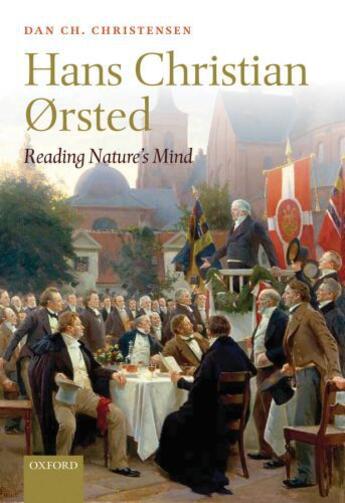-
Nombre de pages : (-)
-
Collection :
(-)
-
Genre :
(-)
-
Thème :
Non attribué
-
Prix littéraire(s) :
(-)
Résumé:
Hans Christian Ørsted (1777-1851) is of great importance as a scientist and philosopher far beyond the borders of Denmark and his own time. At the centre of an international network of scholars, he was instrumental in founding the world picture of modern physics. Ørsted was the physicist who... Voir plus
Hans Christian Ørsted (1777-1851) is of great importance as a scientist and philosopher far beyond the borders of Denmark and his own time. At the centre of an international network of scholars, he was instrumental in founding the world picture of modern physics. Ørsted was the physicist who brought Kant's metaphysics to fruition. In 1820 his discovery of electro-magnetism, a phenomenon that could not possibly exist according to his adversaries, changed the course of research in physics. It inspired Michael Faraday's experiments and discovery of the adverse effect, magneto-electric induction. The two physical phenomena were later described in mathematical equations by J.C. Maxwell. Together these discoveries constitute the prerequisites for the overwhelming development of modern technology. But Ørsted was also one of the cultural leaders and organizers of the Danish Golden Age (together with Grundtvig, Kierkegaard, and Hans-Christian Andersen, his protegé), and made significant contributions to aesthetics, philosophy, pedagogy, politics, and religion. Ørsted remarkably bridged the gap between science, the humanities, and the arts.
Donner votre avis














